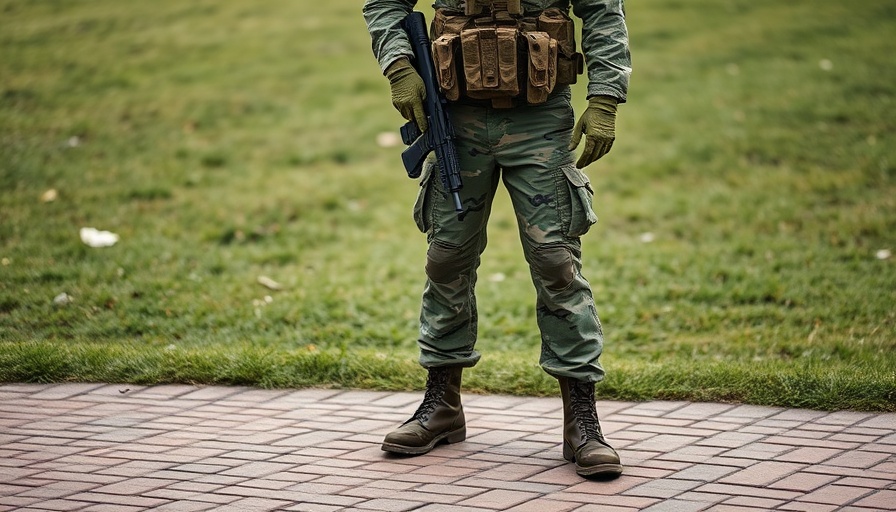
The Recent Shift: Armed National Guard in D.C.
As of August 24, 2025, some National Guard members in Washington, D.C., are now armed, a decision that has stirred both political controversy and public concern. This action follows an ongoing deployment of nearly 2,000 National Guard personnel in the city as part of President Trump's law enforcement initiative. The Pentagon officially announced that fewer than 50 guardsmen would carry their service weapons, albeit under strict guidelines. They are to use their weapons only as a last resort, emphasizing that these service members are primarily there to maintain order as they protect significant landmarks and assist with crowd management.
Context and Implications of Military Presence
The arming of the National Guard is a notable escalation in federal intervention in policing D.C., particularly since Trump has labeled the situation as an "epidemic of crime." The U.S. military involvement raises questions about the nature and scope of law enforcement within the District. Critics argue that this military presence is unwarranted, especially considering that violent crime rates in D.C. have been declining over the past year and a half. Data from local police agencies counters the narrative pushed by Trump, indicating a stable drop in crime statistics, yet Trump's administration persists in claiming an upsurge.
The General Reaction: Public and Political Perspectives
Local officials, including Mayor Muriel Bowser, have criticized the arming of the National Guard as unnecessary and politically charged. The situation presents a dual narrative where local governance is challenged by federal authority, showcasing the friction between intentions for public safety and local autonomy. Many residents are left questioning the motivations behind an increased military presence in their neighborhoods, particularly in light of their recent experiences with reduced crime rates.
The Role of National Guard in Civil Order
Historically, the National Guard has been deployed during times of civil unrest, disasters, and significant public events. This latest deployment expands their role to include acting as a layer of law enforcement, raising concerns about the militarization of police forces. Civil liberties advocates warn of a slippery slope where military resources and tactics might soon span beyond their traditional use.
Future Predictions: What Lies Ahead?
Looking ahead, the presence of armed National Guard members in D.C. could signify a shift in how urban policing is approached in the U.S. If this model sets a precedent, it might pave the way for similar actions in other urban centers struggling with crime. The evolving narrative around crime and policing in America will undoubtedly influence political discourse, potentially impacting upcoming elections and public sentiment towards law enforcement. As national news continues to follow developments, the public will be keenly observing how this new directive unfolds in both perception and practice.
Taking Action in Your Community
For residents of D.C. and beyond, understanding the implications of the National Guard's roles in policing is crucial. Engaging with local representatives, attending community forums, and advocating for transparency can help shape the discourse surrounding law enforcement practices in your area. As these developments unfold, citizens should feel empowered to voice their opinions and contribute to the conversation about their safety and governance.
 Add Element
Add Element  Add Row
Add Row 



Write A Comment